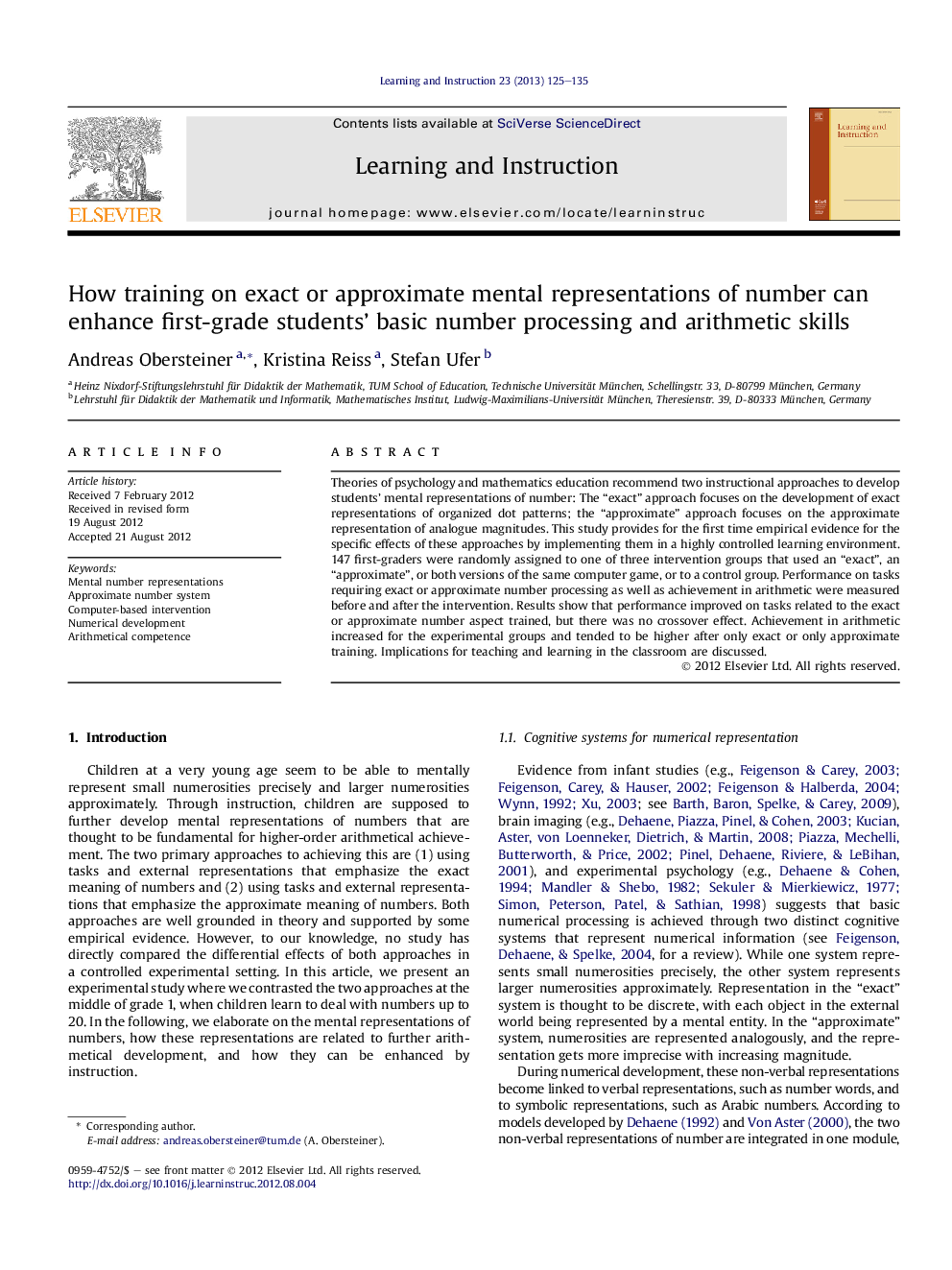| کد مقاله | کد نشریه | سال انتشار | مقاله انگلیسی | نسخه تمام متن |
|---|---|---|---|---|
| 365636 | 621211 | 2013 | 11 صفحه PDF | دانلود رایگان |

Theories of psychology and mathematics education recommend two instructional approaches to develop students’ mental representations of number: The “exact” approach focuses on the development of exact representations of organized dot patterns; the “approximate” approach focuses on the approximate representation of analogue magnitudes. This study provides for the first time empirical evidence for the specific effects of these approaches by implementing them in a highly controlled learning environment. 147 first-graders were randomly assigned to one of three intervention groups that used an “exact”, an “approximate”, or both versions of the same computer game, or to a control group. Performance on tasks requiring exact or approximate number processing as well as achievement in arithmetic were measured before and after the intervention. Results show that performance improved on tasks related to the exact or approximate number aspect trained, but there was no crossover effect. Achievement in arithmetic increased for the experimental groups and tended to be higher after only exact or only approximate training. Implications for teaching and learning in the classroom are discussed.
► Modified versions of the “Number Race” were developed.
► Two instructional approaches on numerical learning are contrasted in a highly controlled setting.
► Exact and approximate training have differential effects on basic number processing.
► Both exact and approximate training lead to equal performance in arithmetic.
Journal: Learning and Instruction - Volume 23, February 2013, Pages 125–135